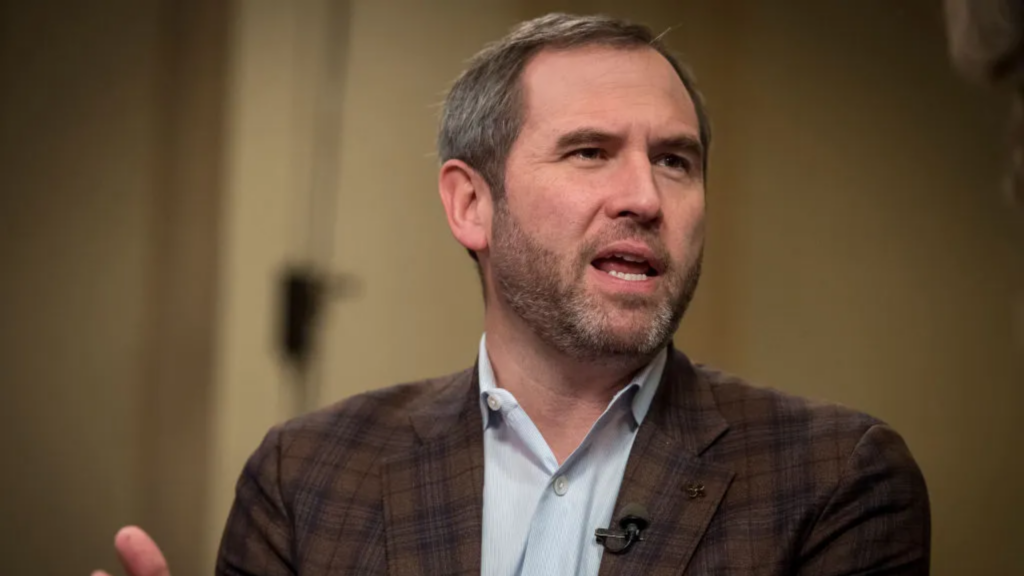Ripple, the San Francisco-based blockchain company, has made a significant move in expanding its presence in the Middle East. The company recently announced that it has received in-principle approval from the Dubai Financial Services Authority (DFSA), the regulatory body overseeing various financial activities in Dubai. This approval paves the way for Ripple to broaden its enterprise-level digital asset solutions and extend its reach across the UAE. As the region becomes increasingly important in the global fintech landscape, Ripple is positioning itself to take advantage of Dubai’s favorable business climate and strategic location.
Brad Garlinghouse, Ripple’s CEO, emphasized the significance of this approval, highlighting how blockchain and cryptocurrency technologies are rapidly gaining traction worldwide. He noted that the UAE is emerging as a global leader in fintech innovation, with Ripple at the forefront of this transformation. This move aligns with Ripple’s broader vision of making digital assets more accessible across various financial markets, leveraging Dubai’s infrastructure to tap into key regions such as the Middle East, Africa, and Asia.

Earlier this year, Garlinghouse predicted that the total market capitalization of cryptocurrency could surpass $5 trillion by the end of 2024. He attributed this growth to a combination of macroeconomic factors, including increasing institutional adoption and regulatory clarity in regions like the UAE. The company’s in-principle approval from the DFSA gives Ripple an advantage as it continues to drive innovation in blockchain payment services, solidifying its leadership in this rapidly evolving market.
Dubai, in particular, has positioned itself as a hub for fintech and blockchain technology. The city’s forward-thinking regulatory framework and emphasis on innovation have attracted major players in the fintech space, and Ripple’s approval is yet another indication of Dubai’s growing importance on the global stage. This approval allows Ripple to operate within the Dubai International Financial Centre (DIFC), a special economic zone designed to promote financial services, offering the company a strategic gateway to expand its offerings across the region.
While Ripple’s license from the DFSA is a major milestone, it also highlights some key differences in Dubai’s regulatory landscape for cryptocurrencies. Ripple’s license pertains specifically to activities within the DIFC, embedding digital assets into the traditional financial services sector. In contrast, other firms in Dubai operate under the Virtual Assets Regulatory Authority (VARA), which has broader jurisdiction across most of Dubai, excluding areas like the DIFC and the Abu Dhabi Global Market (ADGM). While both entities regulate virtual assets, their roles differ slightly, with the DFSA focusing on integrating crypto into conventional financial systems, while VARA aims to establish Dubai as a global leader in virtual assets beyond traditional finance.
This distinction is crucial for Ripple, as it positions the company to appeal more to institutional investors and financial service providers. Operating under the DFSA’s framework offers a level of regulatory clarity and trust that is essential for building partnerships with traditional financial institutions. Ripple’s approach under the DFSA framework suggests a focus on institutional blockchain services, setting it apart from companies that may focus more on retail or alternative financial sectors regulated by VARA.
This in-principle approval is a strategic move for Ripple, giving it a foothold in one of the world’s most dynamic financial markets. Dubai’s progressive regulatory environment, coupled with its role as a global innovation hub, provides Ripple with a significant opportunity to grow its influence in the digital asset space. As demand for blockchain solutions continues to rise across the Middle East, Africa, and Asia, Ripple’s presence in Dubai could open doors to new markets and partnerships in these high-growth regions.
Ripple’s decision to expand its operations in Dubai reflects the broader trend of major fintech and blockchain companies recognizing the strategic importance of the Middle East. With growing interest in digital assets and blockchain technology in the region, Ripple is well-positioned to capitalize on this trend, offering innovative solutions that bridge the gap between traditional finance and the emerging world of digital currencies.
As global demand for blockchain-enabled payment services increases, Ripple’s in-principle approval from the DFSA marks a key moment in the company’s journey. This regulatory milestone strengthens Ripple’s position not just in the UAE, but across a broader global market that is becoming more receptive to the benefits of blockchain technology. The company’s ability to navigate regulatory complexities and secure approvals in key regions will be crucial as it continues to expand its global footprint.
In conclusion, Ripple’s expansion into Dubai through the DFSA approval signals a bright future for the company and the broader blockchain industry. The UAE’s commitment to innovation and its strategic role as a gateway to key emerging markets make it an ideal location for Ripple’s next phase of growth. With the global cryptocurrency market poised for significant expansion, Ripple’s presence in Dubai could be a game-changer, both for the company and the evolving landscape of digital finance.
















